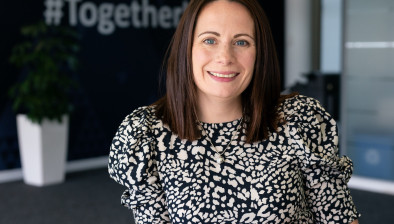Half of Scots unsure how they’ll pay back £200m debt carried into the New Year

Research from smart comparison service Monva, has revealed that half (50%) of Scottish adults are unsure of how they’ll be paying back debt they’ve carried into January.
Despite the national lockdown and closures of non-essential stores, the data found that over a third of Scottish adults (34%) accumulated a new year debt equating to a total of £205 million (an average of £136).
Thinking of expenses in the past few months, a fifth of Scottish adults had to dip into their savings (20%) and almost a tenth (9%) used ‘buy now, pay later’ options to finance Christmas. The month is drawing to an end, yet half (50%) of those with debt carried into the new year are feeling unsure of how and when they’ll be paying it back.
Using cards are the most popular methods of paying back what is owed, with over a tenth (13%) using multiple cards to repay debt. A tenth (11%) have said they’ll be dipping into their savings and some (6%) plan to seek help from friends and family. With all the uncertainty looming, 42% of Scottish adults are said to be feeling pessimistic and unconfident about their finances this year.
Commenting on the nation’s 2021 debt hangover, Steve Wiley, CEO, said: “2020 was a challenging year for the nation’s finances, and while social restrictions may have reduced some families outgoings, many more have entered the New Year carrying debt, without a plan in place on how to repay this.
“But, if 2020 taught us anything, it’s the importance of preparing for whatever life might throw at you. For those carrying debt that means facing up to your finances, taking back control and developing a plan for how to get back into the black.
“It’s encouraging to see that a lucky few are able to combat their January bills through existing savings, while others are already spreading out New Year’s debt into more manageable repayments through credit cards. But consumers should take proactive steps to ensure they are managing this effectively. As well as ensuring they are using the most cost-effective card for their individual circumstances, consumers should also consider increasing their monthly repayments wherever possible, to avoid building interest and pay off the debt quicker.”
He added: “Meanwhile, those whose facing mounting interest should consider parking that debt in a low interest product, such as a balance transfer credit card or personal loan, allowing consumers to take back control and focusing on repayments. While COVID-19 has meant that credit card and loan providers have held back on lending, reducing the number of low interest products on the market over the past year, as we move into 2021 we expect new offers to come onto the market as lenders attempt to reset and make up for lost business over the past year.
“Those considering this option should weigh up the overall cost of a personal loan over a longer-term period vs the cost of a balance transfer credit card, including the associated balance transfer fees.
“In both all cases, for credit cards or loans, using a comparison service with an eligibility check is essential to protect your credit rating and provide access to pre-approved and guaranteed rates (in the case of loans) before applying.”






